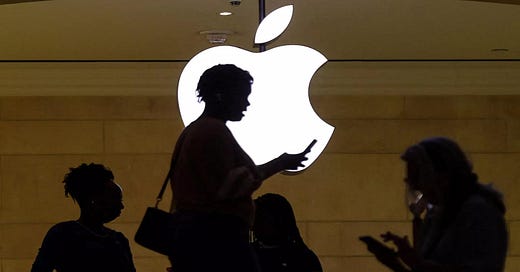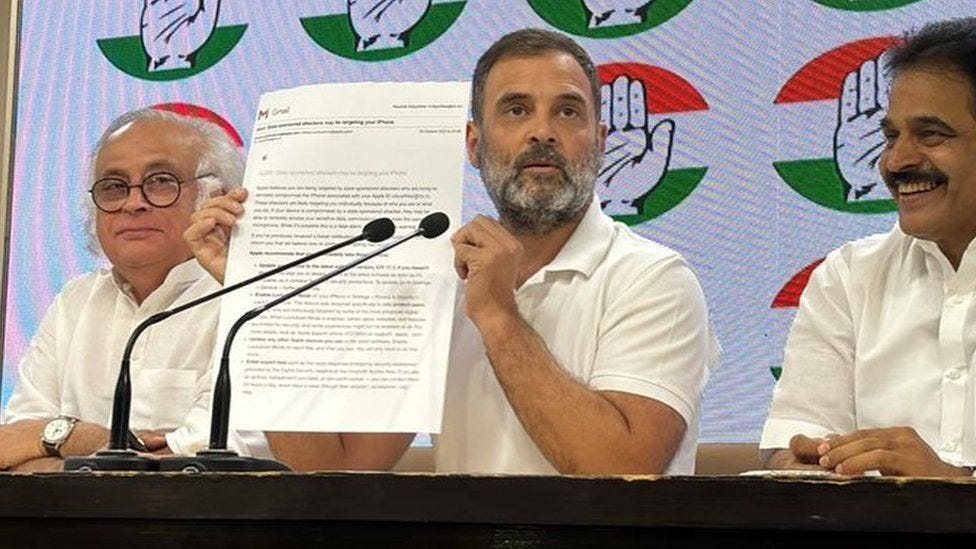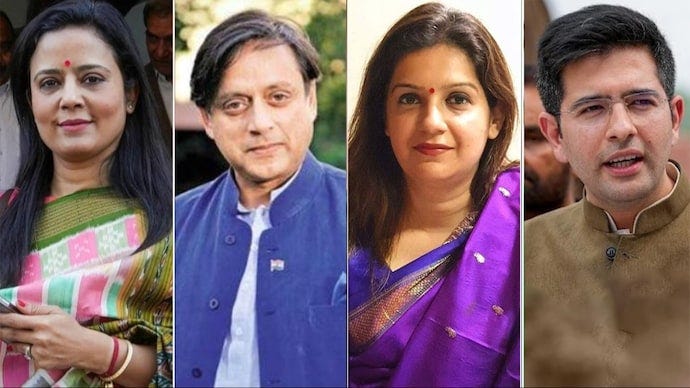Apple of Discord: Government and Opposition Spar Over Alleged Cyberattacks
From "Apple of My Eye" to "Eye of the Storm": iCitadel Vulnerable to Cyberattacks.
The Murky Allegations of State-Sponsored Cyberattacks
Earlier this week, Apple sent out a flurry of alarming notifications to various high-profile Indian personalities, including members of opposition parties and journalists. These messages served as a warning that these individuals were potential targets of “state-sponsored” cyberattacks. While Apple did not specifically name the Indian Government as the perpetrator, Union Minister Ashwini Vaishnaw stated that the Government is committed to investigating these notifications fully. He said, "The Indian Government takes its role of protecting the privacy and security of all citizens very seriously and will investigate to get to the bottom of these notifications." Vaishnaw further clarified, "Much of the information by Apple on this issue seems vague and nonspecific in nature," highlighting that some of Apple's threat notifications could be false alarms.

Raghav Chadha's Concerns: A Glimpse into the Larger Issue
Punjab Rajya Sabha MP Raghav Chadha tweeted on Wednesday, "Early this morning I received a concerning notification from Apple, warning me about a potential state-sponsored spyware attack on my phone." He elaborated that his smartphone isn't just a communication device but also a tool he uses to perform his parliamentary duties, engage with his constituents, and question the Central Government. Raghav Chadha underlined that this kind of snooping puts not just individuals but the democratic interests of the country under threat.
The Five-Fold Implications for India
1.) Government of India: The Question of Accountability
The recent revelation of cyberattacks brings us to an unnerving crossroad: are the alleged state-sponsored actors operating under tacit governmental instructions, or have they become renegade elements? The implications of either scenario are rather disturbing. The former would point to a gross misuse of power, eroding the citizens' trust, while the latter suggests a dangerous lack of control over cyber capabilities that could wreak havoc on national security.
2.) Apple Inc: A Dent in the Armour
Apple Inc finds itself in a challenging predicament following this episode, especially on the heels of the infamous Pegasus scandal. The claims of state-of-the-art security and utmost privacy, which Apple has used as its unique selling points, now appear to be in jeopardy. These developments call into question the credibility of Apple, potentially affecting consumer trust and market standing.
3.) Indian Opposition and Journalists: A Fresh Ammo in the Arsenal
The development provides a new avenue for the opposition and journalists to challenge the Government, irrespective of whether their phones were successfully hacked or not. This acts as a new leverage point to question the ethical integrity and transparency of the ruling administration. While the accusations are yet to be confirmed, the mere existence of such warnings lends weight to critiques of the current regime's commitment to democratic values.
4.) Privacy as a Fundamental Right: Complacency in the Face of Risk
Privacy in India has been declared a Fundamental Right, yet there persists a general attitude of complacency, encapsulated in the notion, "Why hide if you have done nothing wrong?" Such an attitude risks undermining the jurisprudential advances and might serve as a blanket cover for potential governmental overreach. This complacency hinders proactive measures to safeguard citizens' data and personal information.
5.) Role of the Judiciary: The Need for Stringent Oversight
The Judiciary, especially the Supreme Court of India as the guardian of the Constitution and upholder of Fundamental Rights, has a crucial role to play in this unfolding saga. It must be prepared to castigate and severely punish any public servants or private individuals engaging in unlawful surveillance activities. Moreover, the evidence collected through such nefarious means must not be deemed admissible in any proceedings, thereby preventing its use to unjustly influence judicial and quasi-judicial processes.
Balancing National Security and Civil Liberties in a Model Democracy
The complexity of recent cyber threats casts a long shadow, not only over domestic policy but also on India's reputation as the world's largest democracy aspiring to be a model for others. While national security is of utmost importance and elements intent on undermining the unity and integrity of the nation should undoubtedly be addressed within the legal framework, this cannot serve as a justification for the State to become excessively intrusive in the lives of its citizens.
In a democracy that seeks to be not just numerically large but qualitatively influential, the State bears an imperative duty to go beyond mere respect for citizen's privacy, into the realm of proactive protection. The country stands at a critical juncture where action, or the lack thereof, could significantly affect its image. If India lets down its guard on civil liberties, it risks transforming from a guardian of democratic principles to a State that is perceived as indulging in unwarranted surveillance.
Taking the lead in preserving and championing privacy rights is not just a legal obligation for India, but an ethical one, in line with the democratic ideals the nation holds dear. By steadfastly defending these Fundamental Rights, India can further consolidate its standing as a leading, morally sound democratic force on the global stage. This nuanced approach to governance will ensure that the State maintains the delicate balance between national security and individual freedoms, thereby fully realising its potential as a global beacon of democratic values.
Stay Updated: Subscribe for Free
If you've come across this article through a forwarded email, consider subscribing directly. It's complimentary, and our freshly published articles will be quietly delivered straight to your email inbox.







